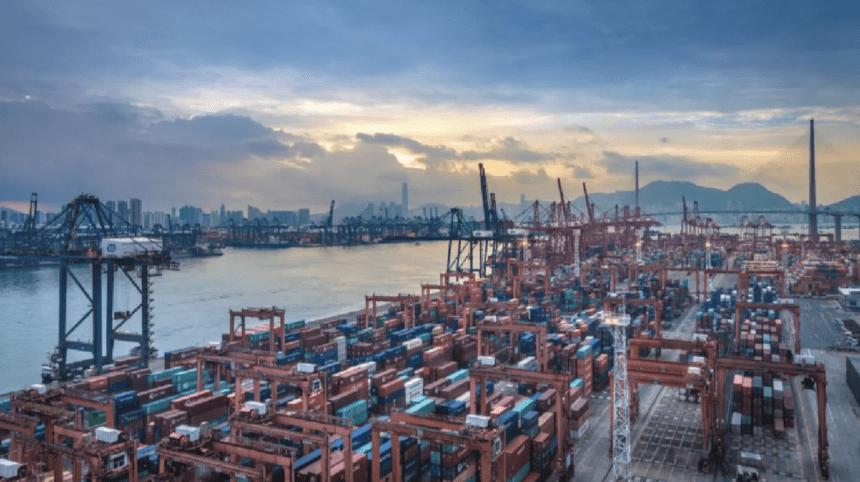Cargo traffic on the seaway, where more than 70 percent of Turkey’s foreign trade transportation is carried out, braked sharply. While the foreign trade cargo handled at ports decreased by more than 4 percent in August, global freight indices signaled that September will also be a difficult month.
The General Directorate of Maritime Affairs announced the amount of cargo handled at ports in August. Total cargo traffic at ports, which increased by approximately 3 percent in the first 7 months of the year and remained parallel to the previous year in July, showed a sharp decline in August. In August, the total amount of cargo handled at ports decreased by 4.5 percent year-on-year to 42.8 million tons. The highest loss in ports was in foreign trade cargo. Foreign trade cargo handled at Turkish ports decreased by 5.7 percent year-on-year to 36.3 million tons in August, as the stagnation in the global economy was compounded by the erosion of the competitiveness of Turkish exporters due to high inflation and difficulties in accessing financing. Due to the slowdown in industrial production, the highest loss in foreign trade traffic at ports in August was in import cargo with 8.4 percent.
Turkish Shipowners’ Association Board Member Elif Uzuner, as well as officials from MSC, the world’s largest shipping company, Rif Line and Medkon, drew attention to the decline in Turkey’s foreign trade transportation by sea in August. Mahmut Işık, General Manager of Medkon, one of Turkey’s leading local shipping companies, said that cargo traffic was also low in September after August.
Declining cargo boosts demand for container ships
In 8 months of 2024, the amount of cargo handled in ports increased by 1.9 percent compared to the same period of the previous year and reached 356 million 112 thousand 778 tons. The amount of containers handled at the ports in 8 months of the year was 9 million 61 thousand 518 TEU with an increase of 9.1 percent compared to the same period of the previous year. Sector representatives explained the increase in container transportation despite the contraction in total cargo as follows: “When there was a decrease in total cargo at Turkish ports, some cargo shifted to containers. Because it is more economical to transport smaller batches of cargo in containers.”
Freight decline accelerated in September
In parallel with the decline in global freight traffic, the Drewry World Composite Container Index (WCI) saw the highest rate of decline in recent months. The index fell by 8 percent last week to 4,775 dollars per 40ft container. The biggest decline in Drewry was experienced on the Far East-Europe route. Freight rates from Shanghai to Rotterdam fell 14 percent last month to USD 6,219 per 40ft container. Likewise, freight rates from Shanghai to Genoa fell 12 percent to USD 5,842 per 40ft container. Spot rates from Shanghai to Los Angeles fell by only 3 percent.










